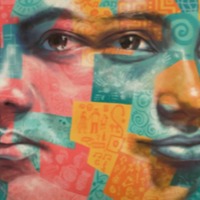
I used to live in Aweil town. I was married to Michael Nyong Akol. He was a student there. I am a Christian. My husband and father were Christians too. I used to go to Church in Aweil. The priest there was Father Matong. I was very happy when I was at church.
We fled Aweil some years ago when there was insecurity in the town. We went to Marin village and survived by farming. In Marin, I had three children. Their names are Nyibol, Akon and Abol. I was five months pregnant when the soldiers came and caught me. It happened when the train came to Wedweil last summer. I tried to run away, but they threatened to shoot me dead. I obeyed and stopped running.
Five soldiers grabbed me. I did not struggle with them. They then tried to tie me to a rope. I refused to cooperate, so they threw me down on the ground and beat me. I almost had a miscarriage. I knew because I started to bleed from the womb. After the beating, I could not walk, and was put on a horse. They took me to their camp near Wedweil, and put me in a big pen with a lot of other people. I spent two days in the pen.
Then, everyone had to start walking to the North, together with the cattle. I was still not able to walk, so they again put me on one of the horses. It took us many days to get to Matarik. We were all divided up there. I was given to Mahmoud Abdullah. He called me Zeneib, and took me to his home. It was nearby in Matarik. He is a trader there. In his shop, he sells sugar, grain, soap and things like that.
I had to clean his house, wash clothes, cook and fetch water with the donkey. Mahmoud had four boy slaves to look after his cattle. Their names are Yel Ngor Akol, Aciek Kuol Tong, Dut Angok Angok and Macol Chan Atak. Mahmoud has two Arab wives. They are Asha and Kadija. They were kind to me. They gave me clothes to wear. But Mahmoud was very unkind. Whenever he was unhappy with me, he would beat me. Once he wanted me to go to the Koranic school and cook for the boys there, but I refused to do it because I am a Christian. He did not force me to go there.
One day the trader Ibrahim came and took me and my baby to the forest and then brought us back here. I am very happy to be back here. I thank everyone who helped me come back. I am sure I will be even happier when I find my husband and children. I will now return to my village and look for them.
Narrative as told to Christian Solidarity International, January 1999, in Northern Bahr El Ghazal, Sudan.









